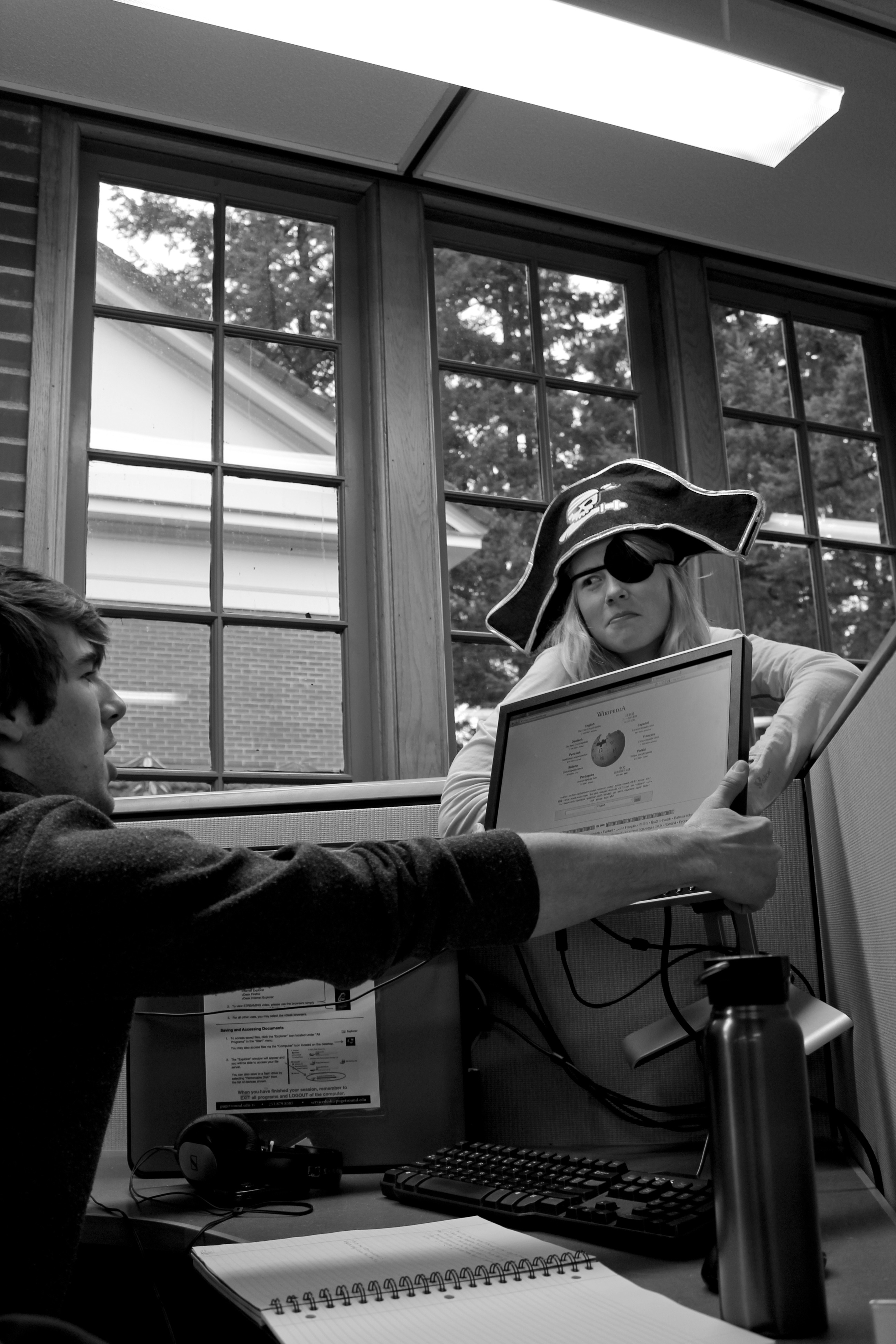At this time in a person’s life, it can be commonplace to wonder if you will make anything of yourself or if you are headed down the path to success. If your find yourself in this place, think about Puget Sound alumnus Ryan Payton and professor Jeff Matthews.
Payton is an alumnus from the University, graduating in 2003, and was one of Matthews’ first students in the fall of 2000, when he began teaching here. Matthews described Payton as being “the best B- student [he] ever had.”
Matthews came to Puget Sound at age 35, after applying for 40 jobs teaching history and one job teaching business. His plan was to work in business for 20 years, then teach for 20 years. But in the end, he worked in business for 10 years, then went back to school and got his Ph.D in history. While he loved history and wanted to teach it, he fell in love with Puget Sound and the rest is, well…history.
Payton was originally a computer science major and described himself as “the worst C- student” in the program. He then switched to studying Japanese and International Affairs, or the FLIA program.
After graduating, he moved to Japan to teach English in a “place literally not on the map” (Payton). He taught one class a week and did freelance writing for Wired Magazine, The Japan Times and other notable organizations.
After a few years, he went to cover the E3 convention in California, only to find out that his boss needed him to interview an important man from Konami. Payton was then given three interviews for a position at Konami only to not get the position, move back to Portland, Ore., and then find out that he did in fact get the job. He worked for Konami for three years then worked for Microsoft as the creative director for “Halo 4.” In 2011, he quit his job at Microsoft and started his company, Camouflaj. Payton contacted Matthews to see if he would be interested in working with him. Matthews took three days to think it over, and then decided to become a full investor.
Together they wanted to create a company with “positive aims” and one that did things a little differently. They wanted to be a “small studio doing big things.”
“Republique” is their first and only game, but there will be five total episodes of “Republique.” Their vision, inspired partly by Payton’s time in Japan, was to create a game about “getting a call from a woman in a totalitarian state” and “lead[ing] her to freedom.” They worked on the game for four months and proceeded to go to the Game Development Conference in 2012 where they showed the initial sketches and first screen shots.
“We might not be able to make great games, but we make great trailers,” Payton said.
In order to complete the project they started a Kickstarter campaign.
They were either going to “sink or swim,” according to Matthews. His wife said they would swim—and that they did, despite some troubles along the way. They nearly did not reach their goal on Kickstarter, but in the end 12,000 people supported then with over half a million dollars.
They described making the game as “19 months of turmoil.” It was “500 nights in a row of going home feeling like a failure,” Payton said. “It isn’t fun from day 1, more like day 501 [when] the game started coming together.”
Matthews described the crew as “extremely positive people,” but that they “were extremely worn down.”
During their talk, they discussed that companies like EA finish games in July but save them for Dec. 19 because Christmas is such a critical time, but for Payton, Matthews and the rest of the Camouflaj team, Dec. 19 was the earliest they could possible finish the game.
Before the game was released, they created an artist mock-up of what it would look like if their game for iPod and iPhone products was on the front page of the App Store. When the game was released, the mock-up was almost identical to what was really there. Their “hopes and fears hinged on Apple,” according to Matthews, and Apple came through for them, putting their game on the front banner of the App Store. They now have nearly 1500 5-star reviews.
While it can still be financially stressful for them, and they cannot pay their team what they deserve or offer benefits, they are in the process of becoming the extremely successful company they wish to be. Their story is a story of “dreams coming true.” While Mathews thinks it would’ve been a stress relief if “the game had been a failure,” he is still proud of the work they all did together. They have plans to release the game outside of the iOS platforms, moving onto Android and PC/Mac. For now, the game is available in the App Store for $4.99 for the iPhone, iPad, and iPod touch.
A tale of pursuing your dreams and making your own success, these men show that “it’s okay if you don’t have your whole life planned out right now”, Payton said.




